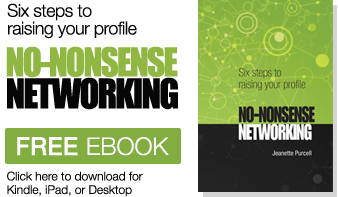
Showing all pages regarding experience.
How to get the most out of Executive Coaching

If you are considering Executive Coaching, or if you have just signed up to a programme of business coaching you are potentially embarking on a life-changing experience. But the success of your coaching programme depends on some basic but essential actions on your part. Take these five steps and you will get more out of your coaching, enjoy the experience and reap the benefits of this important investment.
STEP ONE
Choose a coach who has relevant experience in business (not just in coaching!) and make sure you feel comfortable with this person. A pre-meeting with them before committing to coaching is essential – have some questions for them about their approach and their other clients. Can they give you testimonials? Can you speak to one of their clients?
STEP TWO
Be clear about what you want to change. The more specific you can be about your coaching ‘goal’ the more effective your coaching will be. It can be anything from “I want to be able to deliver powerful presentations with confidence” to “I want to implement a new strategy with the team within 6 months”. A good coach will help you refine your goal and assess your starting posision so that you can monitor and review progress on a regular basis.
STEP THREE
Prepare for each session by reviewing what has happened since you last met your coach. What has gone well? What has not worked well? Has a specific issue arisen that you would like to discuss with your coach (ideally this will be related to your overall coaching goal but not necessarily)?
STEP FOUR
Make sure that each session ends with a summary of what has been discussed and what actions you are going to take. A good coach will do this. Agreed actions allow you to put into practice some of the good ideas or options you have discussed at the session. The knowledge that you will meet your coach again in a month or so is a powerful incentive to getting those actions done!
STEP FIVE
Be prepared to challenge yourself and your ways of working. Be open to new ideas and to trying new things. Coaching provides you with a safe environment in which to be honest and open about what is happening at work and what needs to change. If you are not completely open you will not realise the full benefit of coaching – it will be a missed opportunity.
Coaching is challenging and can be exhausting. But the benefits of sitting down on a regular basis with a trusted professional to analyse what is going on for you at work cannot be underestimated. Follow these steps for a better coaching experience. If you do you will be more likely to achieve noticeable, positive and long-lasting change.
For more information about JPA’s Executive Coaching Programmes contact: Jeanette@jeanettepurcell.com.
Five steps to choosing the right Executive Coach
For many in business, the start of a new year means setting new goals. These might be strategic or specific to your business. But they could be more personal, connected with your career or professional development. Whatever your goal for the year, you could well be considering working with an Executive Coach to help keep you on track, give you support and to improve your chances of success. Good move! But how do you choose the best coach for you? Here are my top 5 tips to help you ensure you make the best possible investment.
Tip #1
Be clear about what you want to achieve through coaching. Are you able to articulate what you need help with or what outcomes you want to see as a result of your coaching? The more specific you are, the more successful your coaching will be. And, if you have a goal, you can seek out the Executive Coach who has the skills and experience to help you achieve it.
Tip #2
Ask around amongst friends and colleagues to see if they have worked with a coach and if there is someone they can recommend to you. A recommendation from someone you know and trust is always better than a Google search!
Tip #3
Look carefully at the profile of the person you are considering as an Executive Coach. Do they have relevant experience? How much practical experience do they have of business? How likely are they to understand your situation and the issues you are facing? An experienced coach is one thing, an experienced coach who has worked at the coal face is even better!
Tip #4
Look carefully at client testimonials. How recent are they? Are they specific about how they benefited from coaching and what they particularly valued about their Coach’s approach.
Tip #4
When you think you have found an Executive Coach who fits the bill, ask for a meeting with them before you commit. Successful Executive Coaching depends on being comfortable with your coach and on there being a strong relationship of trust and respect between you. You will only know if the relationship will work by meeting them face-to-face.
Good luck! If you are considering Executive Coaching you can contact Jeanette Purcell on 07946 385178 or Jeanette@jeanettepurcell.com.
What networking is not
What do you think of when you hear the word ‘business networking’? A crowded reception room full of anonymous faces? Grappling with drinks and canapés while trying to make small talk? People frantically ‘working the room’ and exchanging business cards? It’s not a positive image is it? But the truth is this image continues to discourage people who know they should network but somehow never get round to it. The trouble is, our assumptions about networking misrepresent the reality. So let’s correct those negative thoughts right now!
Networking is not about:
• Attending numerous receptions and events in the hope of making a few tentative connections;
• Arrogance, self-promotion or pretending to be someone you’re not;
• Collecting business cards, connections on LinkedIn, followers on Twitter or friends on facebook.
And believe it or not, networking is not all about YOU!
I once attended a business lecture about ‘Effective Networking’ held in the Middle East. The presenter was the owner of a business club and was clearly there to promote his club as a place to network and do business. I was so dismayed by his views on the subject of networking that I wrote down what he said, word for word.
“When you are networking, do keep your face in everyone else’s and make sure everyone in the room knows who you are and what you do by the end of the night.”
Would you really like to meet someone who behaved like this at an event you were attending? Perhaps you have experience of people who take this approach to networking. Take my word for it; this sort of behaviour does not work! Of course it’s useful to attend networking events if they are relevant, and exchanging business cards on these occasions is customary practice. There are also times when it’s important to do a bit of self promotion when networking. But in my view none of these activities help to define the concept of networking.
What networking is
This is my preferred definition:
Networking is about building reciprocal relationships with people you like, admire and trust.
If you can exchange your negative perception of networking with my new improved definition then, I promise you, the whole idea will become much more appealing and manageable.
Does this description of networking really apply in all situations? Some might argue that you can’t adopt this attitude in a hard-nosed sales environment where the sole object is to get business regardless of the personalities and without any intention of building a long term relationship with customers. Well, I concede that there are some occasions in certain business contexts where we have to do business with people we don’t like. I also accept that, in some sales environments, there is no requirement or even opportunity to build lasting business relationships with clients. However, I would argue that these situations are increasingly rare. And I maintain that the general aim in networking should always be to build relationships with people you like admire and trust. If you do, you are likely to be a more successful networker in the long term.
When I look at my networks and consider the business relationships that have been most valuable to me over time, I realise that my (often subconscious) decision to put effort into building a relationship with another person is influenced by at least one of six factors.
1. I like the other person.
2. I am interested in or respect them.
3. I think I could learn from them.
4. I think they could help me.
5. I want to help them.
6. I trust them.
So think about these six factors when you network and be open to forging new relationships with a wide spectrum of interesting people. You can be a great and effective networker without ever having to attend another drinks reception!
This is an excerpt from Jeanette’s book “No Nonsense Networking” – click here for a free download. http://jeanettepurcell.com/no-nonsense-networking-six-steps-raising-profile/
5 reasons why networking matters
There are many reasons why you should aim to be an effective networker. It’s good for you, it’s good for your career and it’s good for your business. What’s more, if you approach networking with the right attitude you will enjoy the activity and want to do it more. Here are my top five reasons why you should aim to be a great networker:
Reason #1 – We do business with people we like and trust
It’s popular to believe that buying has become a depersonalised activity and that the hiring of staff is based purely on an objective assessment of a candidate’s skills. But the evidence is that, even today, most transactions in business are about relationships. We do business with people we like and trust. You can achieve a certain amount through marketing and advertising campaigns and it is possible for selling to be a completely anonymous business, but at some stage your customer, client or prospective employer is likely to come face to face with YOU. Their decision to buy or hire will be influenced by a range of factors which, at some level, will almost certainly include how much they like and trust you. Relationships are at the heart of any successful business. And so it is important to invest time in making connections, building relationships and maintaining those connections over time.
Reason #2 – Word of mouth marketing really works
I have been running a business for several years and ALL of my clients have come to me through word of mouth. Now, that’s not unusual for my type of business but all companies, regardless of size or industry, rely to some extent on word-of-mouth marketing.
Surveys into the impact of online marketing show that peer recommendation is the most trusted form or advertising, whereas online search, banner advertising and other ads are among the least trusted (NIELSEN – Global Online Consumer Survey – July 2009). Even with the explosion of online review applications (eg, Yelp, Google, Urbanspoon), research clearly demonstrates that word of mouth—product recommendations made by family, friends, work colleagues, or neighbours —is still the most effective way to win new customers. (The Harris Poll #74, June 3, 2010). At the same time, many people fail to recognise the value of customer referrals and the power of networking as a form of word-of-mouth marketing.
Reason #3 – Being good at your job is not enough
Like it or not life is not a meritocracy. The truth is that your skills, qualities and experience are likely to go unnoticed unless you are prepared to promote yourself. This means seeking opportunities to communicate what you have to offer and your career aspirations. I’m not talking about trotting out a sales pitch to everyone you meet, but I am suggesting that a more proactive approach to advancing your career is required. And this involves building a useful supportive network.
Reason #4 – Well connected people are ‘in the know’
The surest way to pick up on a new opportunity – whether it’s a new client, new job or changes in your market – is to be well connected. How many times have you heard about a job vacancy or a potential new project through a friend or work colleague? The grapevine is a wonderful and powerful communication channel and you should use it. By developing your networks you not only stand a better chance of knowing what’s going on but you are also more likely to be remembered when one of your connections wants something that you offer. Networks are vital as a means of sharing knowledge and information. What’s more, a good networker who enjoys meeting and learning about other people will broaden their outlook and develop a useful body of skills and knowledge, making them an interesting person to know.
Reason #5 – Networks are a valuable source of support
Networking is not just about finding opportunities and advancing your own interests. A good network is one that is based on give and take, trust and respect. There are people in my network who I know I can ask for help when I am thinking through a new idea or dealing with a particularly difficult problem. And they know I will do the same for them in return. If you build your network in the right way, you will find that it can be a valuable source of support and advice.
This is an excerpt from Jeanette Purcell’s “No-Nonsense Networking” – 6 steps to raising your profile.
No-Nonsense Networking:
Six Steps to Raising Your Profile
A free eBook by Jeanette Purcell
Through thirty years of experience in business and academia and countless conversations with great networkers, I have observed that surprisingly few people network effectively. Yet good networking skills are essential if you want to get on in business and have a fulfilling career.
This is why I wrote this book. 22 pages full of practical tips and ideas on how to build long-lasting successful business relationships. It is for anyone who wants to grow their business, extend their business networks or raise their profile within their profession or working environment. If you are looking for a job or preparing for promotion, this book is also for you.
In No-Nonsense Networking, I take you through a practical approach to building a successful network in six easy steps:
1. Developing the right attitude.
You need to approach networking in a positive frame of mind. We debunk some of the myths about networking and deal with the common issues that hold people back from being enthusiastic and confident networkers.
2. Preparing your pitch.
With the right attitude and a clear idea of what you want to achieve from your networking you are ready to write your ‘pitch’. We look at how to tell your story and present your skills in a concise, positive and memorable way.
3. Managing your existing networks.
It’s not only about making new connections but also about managing your existing contacts. How well are you managing and tapping into your existing networks?
4. Preparing to network.
Successful face-to-face networking begins with thorough preparation. We will cover the preparation required for every networking situation.
5. Networking events.
From social gatherings to business meetings we look at how to manage networking situations, make the right connections and get results.
6. Building and maintaining the relationship.
Truly successful networks require maintenance. We consider the follow up required to convert a new connection into a productive business relationship and how to sustain and grow your networks over the long term.
Each step is explained in comprehensive detail, with achievable exercises at the end of every section. After reading this book, you will be better equipped to network confidently, successfully and intelligently.
Download for free
You can download this eBook for free from any of the following sources (click on the icons to open in a new window).
Download for free from Amazon Kindle Store, iBooks or as a PDF
About the author
Jeanette Purcell is the founder and Managing Director of Jeanette Purcell Associates, specialists in leadership development and change management. She is a leadership specialist, providing coaching, lecturing and consultancy services in all aspects of leadership development and organisational change. Her focus is on giving leaders and their organisations practical solutions that have a measurable impact on performance.
Jeanette is a Visiting Lecturer at Cass Business School and has over 30 years practical experience in management and business leadership. Until establishing her own business, Jeanette was Chief Executive of the Association of MBAs (AMBA), the global accreditation agency and network for MBA students and graduates. In this role she succeeded in raising the profile of the MBA as the premier qualification for business leaders and developed a range of services and support for MBA graduates throughout the world.
Jeanette is an accomplished international public speaker. She presents and writes on issues relating to leadership, business development and business education and has been instrumental in the delivery of Cass Leadership programmes in Dubai. Current corporate clients include Pfizer International where Jeanette delivers ‘networking skills’ training to high potential female managers.
In 2013 Jeanette founded the Brain Exchange, an exclusive forum for business professionals to exchange advice, knowledge and support in a confidential and professional environment. The Brain Exchange meets monthly in London and is achieving growing recognition as a high quality business network.
Top 3 tips for improving your time management skills
While working with a team of sales managers recently I asked them what part of their jobs they found most difficult. The answer came back loud and clear – ‘time management!’ These guys (yes, they were all men) were working long hours and were expected to meet challenging sales targets. Some of them were responsible for managing other people and all of them had various additional duties such as managing budgets, running meetings, attending exhibitions etc. It struck me that, no matter how experienced we are, or how familiar we are with the basic principles of good time management, we tend to forget everything we have been taught when the going gets tough. We go into fire-fighting mode, we abandon our plans, we stop communicating with others and we neglect our own well-being. Even the most experienced business leaders need regular reminders to encourage them to plan well, manage themselves and prioritise effectively. Here are my three top tips for ensuring that, even when under pressure, your time is managed wisely and effectively.
Time management tip #1 – Plan!
Most people don’t plan well, and yet good planning is at the heart of effective time management. Start with your overall goal – maybe your goal for the year. Is it to grow your business? Launch a new product? Enter a new market? Goals give you something to commit to and they will guide your decision-making. Make sure your goal is SMART – specific, measurable, achievable, realistic and timed. The key question to ask yourself is what will your world look like in a year’s time when you have achieved your goal? How many new customers will you have? What level of financial improvement will you see? These outcomes will be the measures of your success and progress towards these measures should be regularly monitored.
When you have described your overall goal work out what specific steps you must take to achieve your goal. Make these steps as specific and practical as possible and put them in a time-frame. For instance, “Hire a PA by end January” or “Design new page for website by April”. Work out who you need to involve in these activities and communicate your intentions to them.
Write your plan down and keep the document as a key point of reference to monitor progress. Some people are reluctant to write an action plan but if it is written well, and if you keep it under review and update it, it will help to keep you focussed.
Time management tip #2 – Prioritise
President Eisenhower said ‘Most things which are urgent are not important, and most things which are important are not urgent’. If you have set your goals and written your action plan you should have a clear idea of what is important. However, stuff always gets in the way of the best laid plans, demanding your time and attention and distracting you from essential tasks. In these situations you need to be ruthless about prioritising, by identifying what you must do and what you can ignore or leave for another time. Ask yourself:
- Is this really urgent? If it absolutely must be done this week, without fail, then go ahead and get it done. If it can wait for a week allocate some time to get it done – put it in your planner or diary and then move on – it’s dealt with, don’t think about it anymore.
- Is it really important? What are the consequences of not getting this done? If they are truly serious then the task is important and you should do it now or allocate a time to get it done.
Urgent tasks which are not important are often imposed on you by someone else with their own priorities – meetings, phone calls and emails come into this category. In such cases you need to decide how important the activity, or the relationship with the person driving it, is to you. If you conclude that it is not so important then consider whether the task can be delegated to someone else.
Tasks which are not urgent but important are the ones that should be given time and attention. Such tasks might involve planning, preparation, getting some exercise, relationship-building. All these activities will help you to get control over your time. If you don’t plan for these activities and build them into your schedule they will at best become urgent at a later date, or at worst result in a crisis or failure.
Time management tip #3 – Delegate
Even if you work on your own or in an isolated role there are always opportunities to delegate. If it is managed properly delegation can bring so many rewards – more time for you to spend on important stuff, greater efficiencies and staff who are motivated by acquiring new skills. If you are doing things that other people could be doing just as well then you are not using your time effectively.
Here are the basic steps to take when delegating:
- Make a list of tasks that could be delegated.
- Consider who could possibly do the job – this might be someone who has the potential to develop or someone who has some free time (if you’re self-employed you could consider outsourcing)
- Be prepared to brief the person thoroughly. Explain to them exactly why you are delegating the task and put the task in context so that the person understands the big picture and the overall objective.
- Set the parameters. How much authority do they have? When would you like them to report back or check in with you? What are the timescales?
- Monitor. This doesn’t mean interfering or constantly checking and correcting. Just keep an eye on progress – you can set up regular review meetings depending on the size and nature of the task.
Delegation gives you more time but we often shy away from it as we think it’s easier simply to do it ourselves. But if you are prepared to invest time in briefing others who have the skills or the motivation to help you the payback is significant. However, don’t use delegation as a means of dumping all the unpleasant jobs that you don’t want to do – you won’t get the support you need if that’s your attitude!
Effective time management requires a lot of discipline, a high awareness of those things that waste your time and some persistence. You have to be motivated to achieve your goals, but if you start with a good plan, know the difference between urgent and important, and delegate wherever you can you will achieve your goals more quickly – without burnout!
Do we really need appraisals?

I spoke to a Chief Executive recently who was leaving the position they had held for over ten years to embark on a portfolio career. “I will miss many things about my job” he told me “but I won’t miss appraisals.” Now, every good Chief Executive is expected to support and embrace the performance appraisal process. We are told that appraisals are an essential part of performance management. They provide an opportunity to evaluate an individual’s performance and also to consider their development and training needs. The existence of a comprehensive appraisal system is normally thought to reflect well on employers, indicating their commitment to developing their staff and their compliance with best practice in performance management. Why then did this Chief Executive hold such a negative view about something that is universally considered to be a ‘good thing’?
I too have experience of performance appraisals in a range of organisations and, although I appreciate the rationale for appraisals, I too have some reservations about their value.
Appraisals are often considered to be a time-consuming chore by both the line manager and the person being appraised. A great deal of form filling is normally required both before and after the appraisal and the meeting itself can take more than two hours. For one line manager with ten or more staff the amount of time involved to complete the process can easily exceed thirty hours. And what is the return on this considerable investment of time?
Line managers often lack the skills required to conduct an appraisal. The process requires them to listen, ask relevant questions, provide clear feedback, address performance problems, and so on. All these skills need to be learnt and practised – not all line managers have that opportunity. And it is not easy for a manager to both give encouragement and raise performance issues at the same meeting. Yet most appraisals require managers to adopt these apparently contradictory attitudes – is it any wonder that the person being appraised often leaves the meeting not knowing whether they’ve been praised or admonished?
The mistake that companies often make is to assume that the implementation of a performance appraisal process represents good performance management. This is not the case. Good performance management requires regular and consistent communication with employees (at the corporate and individual level) about what is expected from them, how their performance will be assessed and how well they are doing against those measures. Line managers should recognise their responsibility for giving clear direction to employees. They should be communicating with their staff every day, encouraging and a two-way dialogue so that employees are able to raise concerns, put forward suggestions and ask for support. I often think that, if line managers were better at leading, motivating and managing the performance of their staff, the annual appraisal meeting would be irrelevant and unnecessary.
“If we stopped doing appraisals I wonder if anything would change” mused my CEO friend. I wonder.
The buzz about the Brain Exchange

One cold January day back in 2013 I was chatting to a business colleague about the joys of self employment after years of working for large organisations.
“But do you know what I don’t like about running my own business?” I said. “It’s that there is no one to talk to when I need to make a big decision or when I am thinking through a new idea or problem. Wouldn’t it be great if we could get access to some peer group support once a month, where we can do some ‘thinking aloud’ with other business people?”
As we talked, it became clear that my complaint was quite common among people who were either self-employed or running small enterprises. And we realised that, although there are many business groups and networks in existence, none of them addressed this particular problem. And that is how the Brain Exchange started.
Today the Brain Exchange is a regular fixture in Central London attended by growing numbers of people from different walks of life and backgrounds. Here’s how it works….
What is the Brain Exchange?
The Brain Exchange is a unique forum for business professionals to share experiences, exchange knowledge and find inspiration within a confidential and supportive environment. It’s not just a network or a talking shop – each meeting of the Brain Exchange is professionally facilitated to ensure that discussions are structured and focused on achieving results.
Who is it for?
Brain Exchange members are senior professionals working in a diverse range of roles and sectors. Current members include CEOs, entrepreneurs, social enterprises, freelancers, small business owners and senior managers.
How does it work?
Meetings of the Brain Exchange are held monthly in London from 18.30 to 20.30. There are eight spaces available at each meeting and places are reserved on a first come first served basis.
With direction from a professional facilitator, the group spends one hour exploring an issue presented by a group member who volunteers for the ‘hot seat’. The discussion follows an agreed structure to encourage full participation and the consideration of all view points. The final part of the discussion is focused on drawing conclusions from the discussion and identifying possible actions. The formal part of the meeting is followed by drinks and networking.
All discussions are strictly confidential so that members can be completely and honest about the problems that keep them awake at night.
What are the benefits?
If you’re in the ‘hot seat’ you benefit from what is in effect an hour of business coaching. But everyone benefits from being part of the discussion. All participants get:
- Eight different perspectives on an idea or problem
- New ideas for your business and new approaches to business problems.
- The opportunity to step back and reflect on your situation, your business and the future
- Access to support from fellow professionals in a confidential environment.
- New networks and business connections
- The opportunity to learn from others with different skills, knowledge and areas of expertise
What are people saying about the Brain Exchange?
“It’s like having a ready-made super-professional Advisory Board”
“The meetings are professional and focused – you get real value in less than two hours.”
“For my family-run business it’s a way of tapping into expertise and experience that we don’t have inside the company.”
“I gained a lot from being in the hot seat – I came away with solutions and ideas for re-energising my business.”
“Knowing that other people experience the same problems is so reassuring.”
“It’s like business-coaching but with added benefits!”
How can I join?
Membership of the Brain Exchange is by invitation only. You can be introduced by an existing member or apply direct to the Brain Exchange by contacting Jeanette Purcell. You should ideally have senior level business experience, be willing to share your experiences and ideas and be a good listener.
What’s the buzz? It’s the Brain Exchange.
For more information see http://jeanettepurcell.com/brain-exchange/
A knowledge-sharing forum for business professionals
The Brain Exchange is a unique forum for business professionals to share experiences, discuss concerns and find solutions and inspiration within a confidential and supportive environment.
It’s not just a network or a talking shop – each meeting of the Brain Exchange is professionally facilitated to ensure that discussions are structured and focused on achieving results.
Who is it for?

Brain Exchange members are senior professionals working in a diverse range of roles and sectors. Current members include CEOs, entrepreneurs, freelancers, small business owners and senior managers.
How does it work?

Meetings of the Brain Exchange are held monthly in London from 18.30 to 20.30. There are ten spaces available at each meeting and places are reserved on a first come first served basis.
At each meeting a member of the group volunteers for the ‘hot seat’. They will outline to the group an idea, a problem or challenge that they are facing – anything that they would like to share with the group. With direction from a professional facilitator, the group spends one hour exploring the issue, giving feedback and making suggestions. The discussion concludes with the person in the ‘hot seat’ summarising their learning from the discussion and determining what actions they will take.
The formal part of the meeting is followed by drinks and networking.
All discussions are strictly confidential.
What are the benefits?

If you’re in the hot seat you are effectively getting an hour’s worth of business coaching. But everyone benefits from being part of the discussion. All participants get:
- Eight different perspectives on an idea or problem
- New ideas for your business and new approaches to business problems.
- The opportunity to step back and reflect on your situation, your business and the future
- Access to support from fellow professionals in a confidential environment.
- New networks and business connections
- The opportunity to learn from others with different skills and areas of expertise
What are people saying about the Brain Exchange?

“It’s like having a ready-made super-professional Advisory Board”
“The meetings are professional and focused – you get real value in less than two hours.”
“For my family-run business it’s a way of tapping into expertise and experience that we don’t have inside the company.”
“I gained a lot from being in the hot seat – I came away with solutions and ideas for re-energising my business.”
“Knowing that other people experience the same problems is so reassuring.”
“It’s like business-coaching but with added benefits!”
How can I join?
Membership of the Brain Exchange is by invitation only. You can be introduced by an existing member or apply direct to the Brain Exchange by contacting Jeanette Purcell at jeanette@brainexchange.co.uk, or simply use the form below:
You should have senior level business experience, be willing to share your experiences and ideas and be a good listener.
How much does it cost?
Information about membership fees is available on www.brainexchange.co.uk
How do I sign up?
Go to www.brainexchange.co.uk
When is it next on?
The Brain Exchange will next be meeting on the following dates. Go to www.brainexchange.co.uk to register:
- 13 April 2016
- 11 May 2016
- 15 June 2016
- 13 July 2016
It’s networking Jim, but not as we know it

I was coaching a client this week who recently became self-employed after working as a project manager for many years. She had already completed a couple of jobs on a freelance basis and there were more in the pipeline. “The thing is” she said “all the work I’ve done so far has come through word of mouth. At some point I will have to advertise and do some real marketing”. I queried this with her, suggesting that she must have some great networks that she could tap into for more business. “Ah, but I’m no good at networking” she replied “I haven’t got time to go to all those events and anyway that sort of thing scares me!”.
Now, this conversation highlights two very common misunderstandings about networking.
The first misunderstanding is that acquiring business through word of mouth is somehow not ‘real’ marketing. More than that, there is a tendency to assume that referrals or personal recommendations are more about luck than successful marketing. Absolutely not! You don’t get referrals unless you have a great reputation and can be trusted to do a good job. If you are proactive about maintaining the relationships that you have with people in your industry you will find that these relationships lead to new connections and new business. Word of mouth is THE most important form of marketing for small businesses. Don’t dismiss or ignore it!
The second misunderstanding is that networking is all about going to events, receptions and conferences. Most people will tell you that they associate the word ‘networking’ with the experience of walking into a drinks reception full of people they don’t know and being expected to ‘work the room’ (dreadful phrase). I can’t remember the last time I went to a networking event and yet I am networking all the time. Yes, you’ve got to get out there and meet people to build your business, and you’ve got to do some selling. But you don’t have to attend events or put yourself into unfamiliar situations to achieve this. Networking is about building relationships with people you like, admire and trust. Start building your networks by talking to people who already know and love you. Ask them for advice, ask them for introductions to people who might want what you’re selling. This form of networking is ten times more successful than cold calling, expensive advertising or collecting a few random business cards at a networking event.
My client visibly relaxed when she thought about networking differently. It’s not hard work, it needn’t be scary, but good networking is essential to developing your business.
Don’t miss JPA’s Master Class “Positive Impact and Confident Networking” on 25 February 2014. Early bird booking discount applies until 28 January 2014. Find out more here http://jeanettepurcell.com/jpa-master-class-series/
























